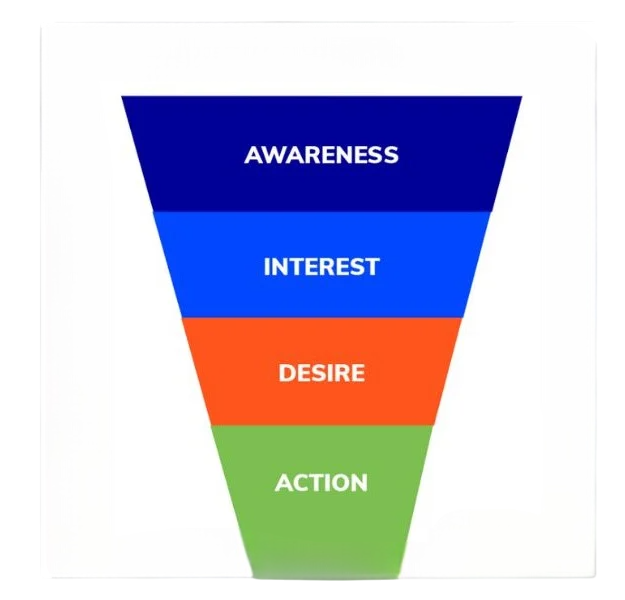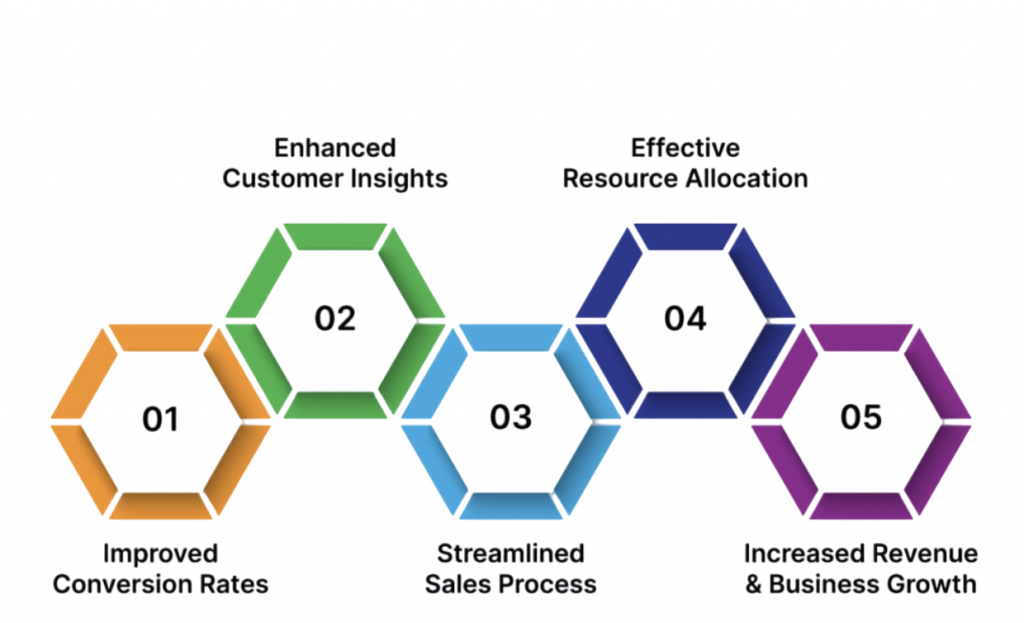
- Introduction
- Understanding the Concept of a Marketing Funnel
- What is a Digital Marketing Funnel?
- Stages of a Digital Marketing Funnel
- Importance of the Digital Marketing Funnel
- How to Build an Effective Digital Marketing Funnel
- Tools to Optimize Your Digital Marketing Funnel
- Common Mistakes to Avoid
- Conclusion
Introduction
In the world of digital marketing, understanding how potential customers move from first hearing about your brand to becoming loyal buyers is crucial. This journey is often described through the concept of a digital marketing funnel, a framework that helps businesses map out and optimize each step of the customer acquisition process. Whether you’re a marketer, business owner, or entrepreneur, Digital Marketing Training grasping what a digital marketing funnel is and how to use it effectively can significantly enhance your marketing efforts and ROI.In today’s competitive online landscape, attracting customers isn’t just about getting traffic it’s about guiding potential buyers through a journey that turns interest into action. That’s where the digital marketing funnel comes in. The digital marketing funnel is a strategic model that outlines the stages a customer goes through from the moment they discover your brand to the point of conversion and even beyond. It helps marketers deliver the right message at the right time, nurturing leads through awareness, consideration, and decision-making phases. Understanding and optimizing each stage of this funnel allows businesses to increase engagement, build trust, and ultimately drive more conversions. Whether you’re a marketer, entrepreneur, or business owner, mastering the funnel is essential for building a scalable and sustainable online presence.
Ready to Get Certified in Digital Marketing? Explore the Program Now Digital Marketing Online Training Offered By ACTE Right Now!
Understanding the Concept of a Marketing Funnel
- unnel Shape Explanation: The funnel shape represents the gradual narrowing of prospects many enter at the top, Digital Marketing Project fewer reach the bottom and convert.
- Stages of the Funnel:
- Typically divided into:
- TOFU (Top of Funnel): Awareness
- MOFU (Middle of Funnel): Consideration
- BOFU (Bottom of Funnel): Conversion

- Customer Journey Focus: Helps marketers understand and influence the mindset and behavior of leads at each stage.
- Content Alignment: Guides the creation of targeted content (e.g., blogs for awareness, case studies for consideration, demos or offers for conversion).
- Measurement and Optimization: Funnel metrics (e.g., conversion rate, drop-off points) help identify where prospects are lost and what can be improved.
- Goal-Oriented Strategy: Drives marketing efforts toward specific business goals like lead generation, sales, or retention.
What is a Digital Marketing Funnel?
A digital marketing funnel is a modern adaptation of the traditional marketing funnel tailored specifically for digital channels. It illustrates how online marketing efforts guide potential customers through stages, starting from discovering your brand on the internet to making a purchase and beyond.This funnel helps marketers plan targeted content and campaigns appropriate for each stage of the buyer’s journey. It integrates different digital touchpoints such as Digital Marketing Training , websites, social media, email marketing, paid ads, and more.A Concept of a Marketing Funnel is a strategic model that represents the step-by-step journey a potential customer takes online from first discovering a brand to eventually making a purchase or taking another desired action. It visualizes how people move through different stages: starting with awareness, progressing to interest and consideration, and finally reaching conversion and even post-purchase loyalty. Each stage of the funnel requires tailored marketing tactics, such as content, ads, or emails, designed to guide prospects closer to a decision. By understanding and optimizing this funnel, businesses can attract the right audience, build trust, and increase conversions more effectively.
To Explore Digital Marketing in Depth, Check Out Our Comprehensive Digital Marketing Training To Gain Insights From Our Experts!
Stages of a Digital Marketing Funnel
While variations exist, most digital marketing funnels include the following core stages:
- Awareness: At the top of the funnel, the goal is to make potential customers aware of your brand or product. This can happen through SEO, social media posts, paid ads, blogs, videos, or influencer marketing. The audience here is broad and may not yet know they have a problem your product solves.
- Interest: Once aware, Digital Marketing Skills some prospects show interest by engaging with your content, visiting your website, or following your social media channels. This stage involves nurturing curiosity through more detailed content like ebooks, webinars, newsletters, or case studies.
- Consideration: At this point, prospects evaluate your offering against competitors. They might compare features, prices, or reviews. Strategies like targeted email campaigns, retargeting ads, and product demos work well here to persuade the potential buyer.
- Conversion: The bottom of the funnel is where the prospect makes a decision and converts whether by purchasing, signing up, or requesting a consultation. Clear calls to action, seamless checkout experiences, and incentives like discounts encourage conversion.
- Retention and Advocacy: The funnel doesn’t end at conversion. Retaining customers and turning them into advocates who refer others or provide testimonials is key for long-term growth. This stage uses loyalty programs, personalized emails, and social engagement.
Importance of the Digital Marketing Funnel
- Provides a clear customer journey: Helps visualize and understand how potential customers move from awareness to conversion.
- Enables targeted marketing: Allows you to deliver the right message at the right stage, improving relevance and engagement.
- Improves conversion rates: By addressing user needs at each stage, the funnel increases the likelihood of turning leads into customers.
- Supports better content strategy: Guides the creation of content tailored to each phase awareness, consideration, Pay-Per-Click Explained and decision.
- Identifies weak points: Funnel analysis highlights where prospects drop off, helping you fix issues and optimize performance.
- Increases ROI on marketing efforts: More efficient targeting and improved conversions lead to a better return on investment.
- Builds stronger customer relationships: Nurtures leads through value-driven interactions, building trust and brand loyalty.
- Facilitates long-term growth: A structured funnel creates repeatable, scalable marketing processes that support sustainable business development.
Looking to Master Digital Marketing? Discover the Digital Marketing Expert Masters Program Training Course Available at ACTE Now!
How to Build an Effective Digital Marketing Funnel
Building an Effective Digital Marketing Funnel involves:
- Mapping Your Buyer Personas: Understand your ideal customers’ demographics, pain points, and online habits.
- Creating Stage-Specific Content: Tailor content to awareness, interest, consideration, and conversion stages.
- Choosing the Right Channels: Use SEO, social media, email, paid ads, Digital Marketing Made Simple etc., based on where your audience spends time.
- Automating with Marketing Tools: Use CRM and email marketing automation to nurture leads efficiently.
- Analyzing and Optimizing: Continuously monitor funnel performance and tweak strategies to improve results.

Tools to Optimize Your Digital Marketing Funnel
Many digital tools help manage and optimize marketing funnels, such as:
- Google Analytics (for tracking traffic and conversions)
- HubSpot or Salesforce (CRM and marketing automation)
- Mailchimp or Active Campaign (email marketing automation)
- Facebook Ads Manager and Google Ads (paid campaign management)
- Hotjar or Crazy Egg (heatmaps and user behavior analysis)
Common Mistakes to Avoid
- Lack of Clear Funnel Strategy: Jumping into campaigns without mapping out each stage of the funnel leads to confusion and missed opportunities.
- Ignoring the Top of the Funnel (TOFU): Focusing only on sales or conversions without building awareness first limits long-term growth.
- Not Nurturing Leads: Failing to engage leads during the middle stages (MOFU) causes drop-offs before conversion.
- Using One-Size-Fits-All Messaging: Sending the same message to all users, regardless of their stage in the funnel, Digital Marketing vs Social Media reduces effectiveness.
- Neglecting Data and Analytics: Not tracking funnel metrics prevents you from understanding what works and where users fall off.
- Overloading Prospects with CTAs: Bombarding users with hard sells too early in the journey can push them away.
- Forgetting About Post-Purchase: Not engaging customers after they convert misses out on loyalty, referrals, and repeat business.
Preparing for Digital Marketing Job Interviews? Have a Look at Our Blog on Digital Marketing Interview Questions and Answers To Ace Your Interview!
Conclusion
The digital marketing funnel is an essential framework that guides how businesses attract, engage, convert, social media and retain customers in the digital age. By understanding and leveraging each stage effectively, Concept of a Marketing Funnel metrics marketers can create targeted campaigns that improve ROI, foster lasting customer relationships, targeting and drive sustainable business growth. Whether you are starting out or refining your current strategies, mastering the Digital Marketing Training funnel will empower you to meet your marketing goals with clarity and precision.The digital marketing funnel is a strategic model that guides potential customers through their journey from awareness to conversion and beyond. It helps businesses understand how to effectively engage with their audience at each stage of Awareness, Interest, Consideration, Conversion, and Loyalty/Advocacy and deliver targeted content or actions that nurture relationships and drive results.




